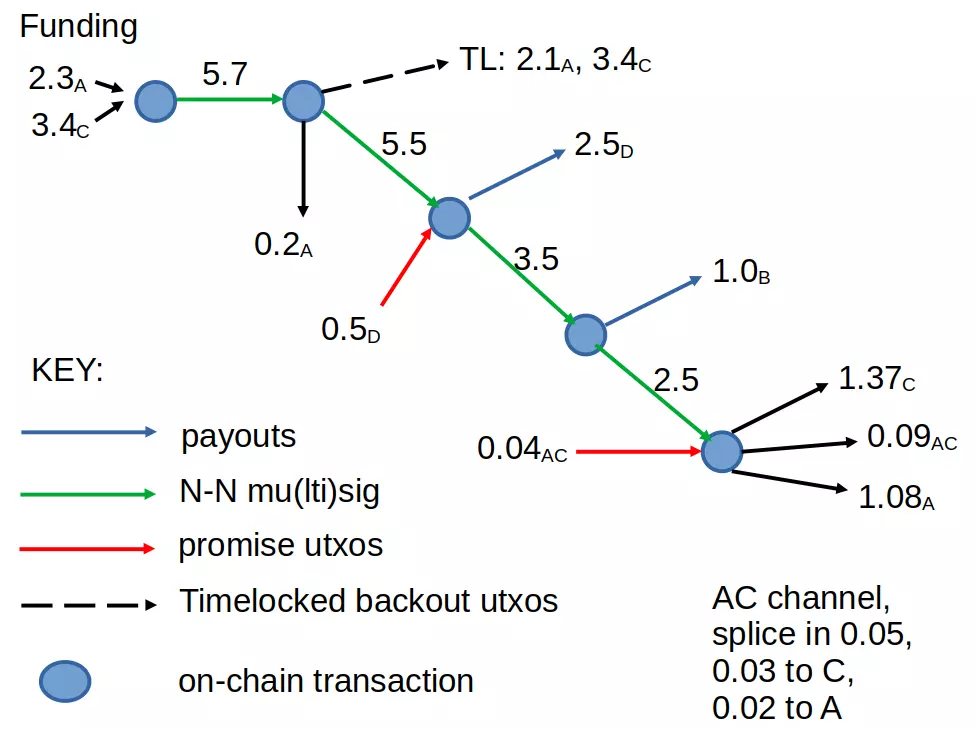waxwing on Nostr: I'm rather disturbed to see so many cryptography/security luminaries online ...
I'm rather disturbed to see so many cryptography/security luminaries online complaining about how Telegram is not properly encrypted, Durov never had users privacy in mind etc. etc. as if this concept of clean, pure privacy is what matters, or what matters to users. It reminds me of a pattern I've seen commonly over the years: people think Bitcoin was about anonymous transactions when literally every aspect of its design was focused on censorship resistance and that's a different thing, even if yes they are connected.
The example I've used in the past is: suppose you're on the plane out of a totalitarian country where you were an activist against the regime (flying out of the UK for example), at *that* point you care that your transaction is in Bitcoin and not Tether on TRON, not because Bitcoin has privacy (it doesn't, at least in general - the regime could be watching the txs on chain in real time). And yes mining centralization etc. etc. , yes that is *the* threat against Bitcoin's success, not a lack of amount blinding.
Coming back to Telegram, its failing is centralization, not lack of privacy. People use(d) it in such large quantities because of a *lack of barriers to enter and use it to communicate* (including communicating with huge groups of like minded people), *without censorship* (so you could support Hamas or Russia or whatever is verboten locally). Most people who use it are not so stupid as to think it isn't public. And while some *are* stupid, falling for scams etc., so what? That's called real life. It's the same story with money. Not bitcoin on its own but "crypto" (yuck, sorry) generally has won over so many despite its technical jank, because there are no barriers to entry. Sniffy US "cryptographic elites" like Green, Marlinspike and Zooko telling us all how inferior Telegram is are, as so often in this field, missing the forest for the trees. Their reluctance to protest Durov's arrest is honestly disgraceful.
(Btw Signal is kinda very good at secure messaging, yeah, but it *does* have centralized servers, too)
The example I've used in the past is: suppose you're on the plane out of a totalitarian country where you were an activist against the regime (flying out of the UK for example), at *that* point you care that your transaction is in Bitcoin and not Tether on TRON, not because Bitcoin has privacy (it doesn't, at least in general - the regime could be watching the txs on chain in real time). And yes mining centralization etc. etc. , yes that is *the* threat against Bitcoin's success, not a lack of amount blinding.
Coming back to Telegram, its failing is centralization, not lack of privacy. People use(d) it in such large quantities because of a *lack of barriers to enter and use it to communicate* (including communicating with huge groups of like minded people), *without censorship* (so you could support Hamas or Russia or whatever is verboten locally). Most people who use it are not so stupid as to think it isn't public. And while some *are* stupid, falling for scams etc., so what? That's called real life. It's the same story with money. Not bitcoin on its own but "crypto" (yuck, sorry) generally has won over so many despite its technical jank, because there are no barriers to entry. Sniffy US "cryptographic elites" like Green, Marlinspike and Zooko telling us all how inferior Telegram is are, as so often in this field, missing the forest for the trees. Their reluctance to protest Durov's arrest is honestly disgraceful.
(Btw Signal is kinda very good at secure messaging, yeah, but it *does* have centralized servers, too)
